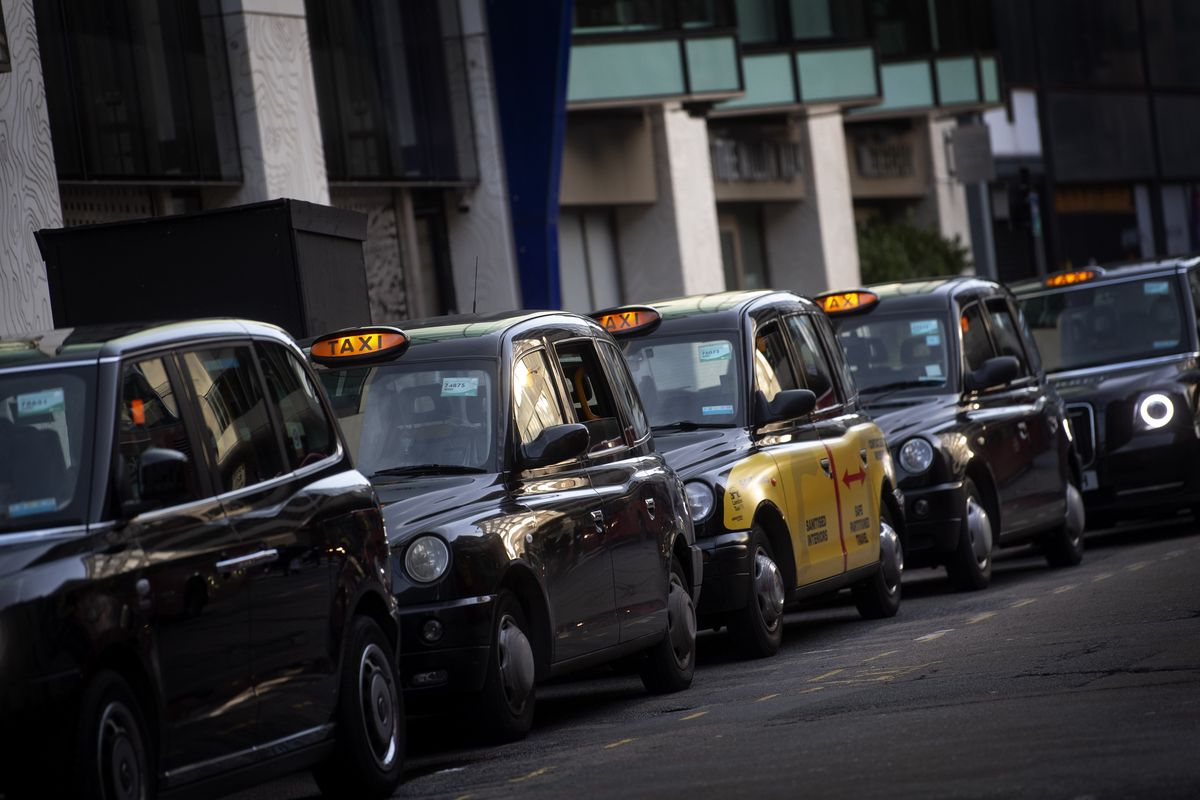End of the traditional black cab? Drivers favour electric vehicles and shy away from diesel taxis

Hybrid, plug-in and electric taxis are now more common
PA

Hybrid, plug-in and electric taxis are now more common
Traditional black cabs could become all-electric as fleets turn away from petrol and diesel models.
Data from the Department for Transport found that petrol vehicles were far less common in taxi fleets across the UK in recent years.
Hybrid cars were among the most popular types of vehicles for taxi drivers with more electric models also showing promise.
The data detailed how taxi fleets have around four times the proportion of hybrid vehicles but around a third of the proportion of battery electric vehicles.
Do you have a story you'd like to share? Get in touch by emailingmotoring@gbnews.uk

The number of petrol and diesel cabs has reduced since 2020
PA
For private hire vehicles, hybrid cars were also more common with electric vehicles also growing in popularity.
The DfT stated: “In other words, amongst taxis and PHVs, diesel and hybrid electric vehicles were more common than for the car fleet, while petrol vehicles were less common.
“A higher proportion of PHVs (8.8 per cent) were battery electric than for cars (2.8 per cent).”
Over the four-year period from 2020 to 2024, the proportion of taxis using petrol and diesel has fallen from 89 per cent in 2020 to 71 per cent in 2024.
The proportion of hybrid vehicles, however, has more than doubled from 10 per cent in 2020 to 28 per cent in 2024, which has been aided by the Government's ambitious net zero goals.
Under the previous Conservative Government, the UK hoped to ban new sales of petrol and diesel cars by 2035.
This would mean 100 per cent of new car sales would need to be electric by 2035, with at least 22 per cent electric by this year under the Zero Emission Vehicle mandate.
However, with the new Labour Government, the deadline could be moved back five years to its original deadline of 2030.
During the four-year period, the proportion of PHVs using petrol and diesel has also dropped from 65 per cent in 2020 to 46 per cent in 2024.
Notably, the proportion of hybrid vehicles has increased from 34 per cent in 2020 to 44 per cent in 2024.
The number of battery electric vehicles has rapidly increased tenfold from 0.8 per cent in 2020 to 8.8 per cent this year.
To help more drivers go electric, the UK Government previously introduced a Plug-in Taxi Grant which currently offers a £6,000 contribution towards the cost of a new electric taxi.
LATEST DEVELOPMENTS:

Drivers can benefit from the Plug-in Taxi Grant, which cuts costs by £6,000
PA
The scheme offers a discount on the price of eligible taxis depending on the vehicle’s range, emissions and design.
While many have used the scheme to secure a cheaper zero emission vehicle, only two options are available, namely the Dynamo Taxi and the LEVC TX.